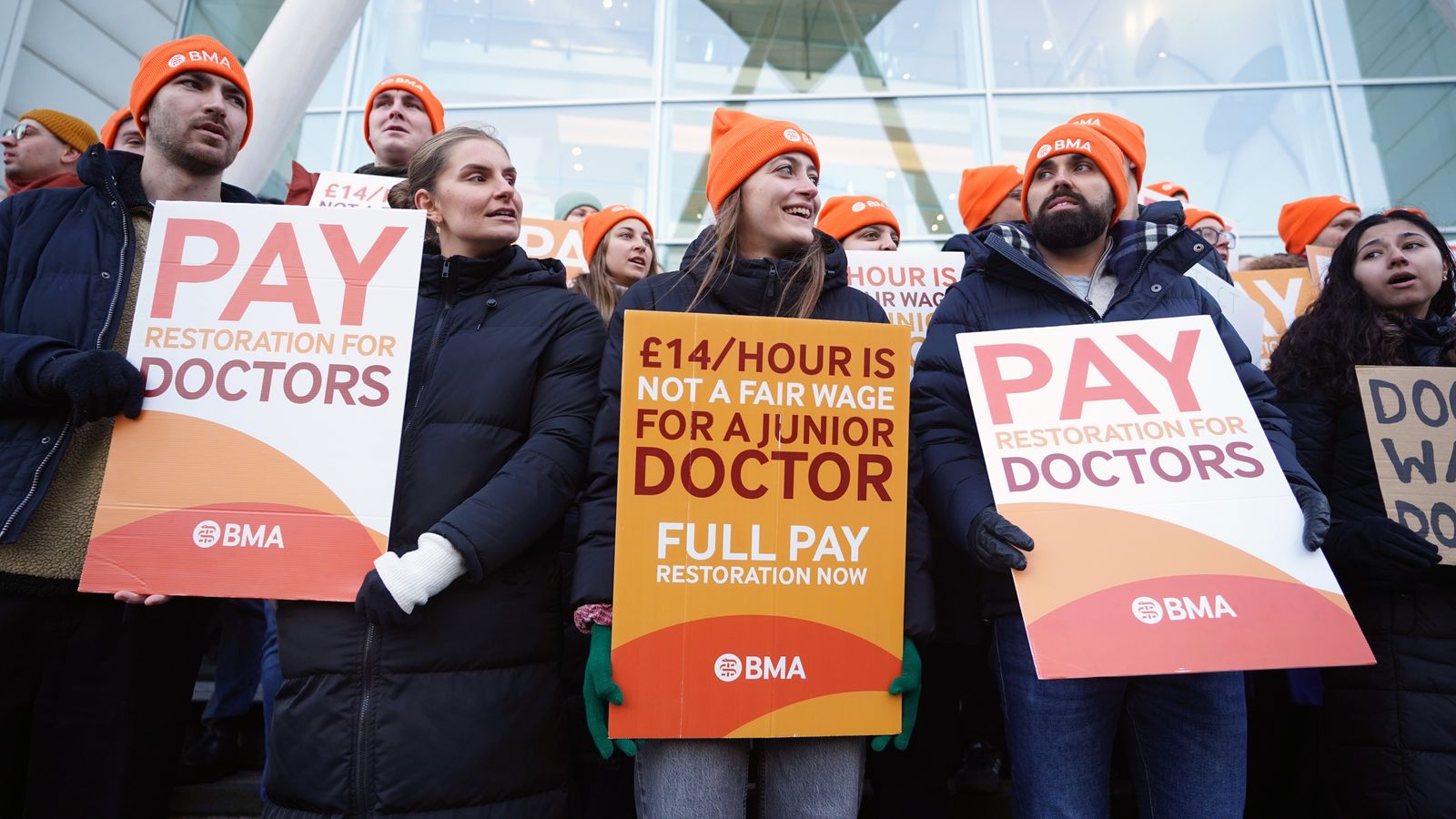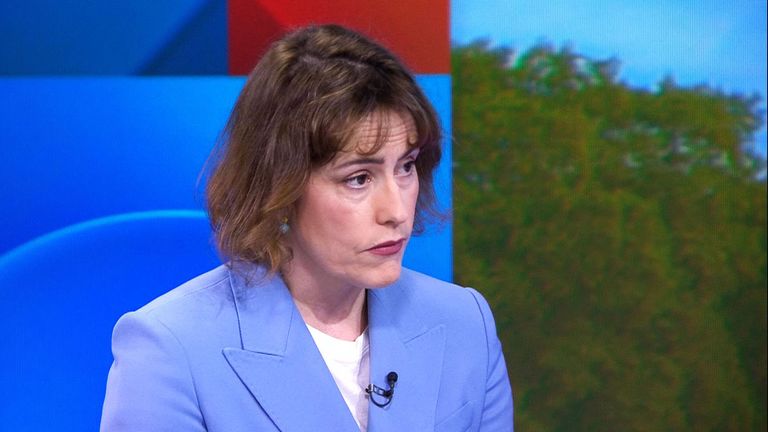Jeremy Hunt has said the “door is open for constructive discussions” with junior doctors, as they begin three days of strike action in England over pay and conditions.
The walk-out started at 7am on Wednesday, after negotiations between the British Medical Association (BMA) and the Department of Health broke down earlier this month.
Reports suggested an additional pay rise of around 3% – on top of the 8.8% recommended by the independent pay review body in April – was put on the table by the government.
But the BMA said that would amount to real-term pay cuts for its members following years of below-inflation pay rises, with only a rise of 35% bringing pay back to 2008 levels.
Politics live: Early Christmas present for Sunak as inflation falls
A final offer is not understood to have been made by Health Secretary Victoria Atkins before the BMA’s deadline, leading to the union announcing fresh strike dates.
Junior doctors, who are qualified but are undertaking further training after medical school, make up nearly half of all doctors in the English NHS system.
Health charities and organisations issued a plea to junior doctors to call off the industrial action over fears patients could be left “stranded” in hospital over Christmas as they wait to be discharged.
The groups, including Age UK and the NHS Confederation, also said it would be “extremely difficult to ensure safe and effective care during this period for all patients that need it”.
But the BMA’s chair of council, Philip Banfield, said for patients to get the care they needed, the government had to “invest in the expertise required to deliver this”, adding: “This is the last strike action of 2023, which will have seen 28 days of action by junior doctors.
“The government is entirely capable of making the total for 2024 zero days – but it needs to make a serious and credible offer now that we can put to members.”
This latest round of strikes is impacting services across the country, with Cheltenham A&E among those closing during the action.
But the NHS has said emergency and urgent care will be prioritised during the strikes, with routine care the most affected.
Speaking to reporters on Wednesday, the chancellor said the walk-outs were “incredibly disappointing”.
Mr Hunt added: “The health secretary has said her door is open for constructive discussions.
“When it comes to this government’s commitment to the NHS, we have 25,000 more doctors than we had in 2010, and we’ve increased funding by more than a third in real terms, so we have shown our commitment to the NHS.
“And more than a million NHS workers have recognised that by settling for a fair and reasonable pay deal, and I hope junior doctors to the same.”
But the BMA’s junior doctors committee said it was “extremely disappointing to be in this position”, with its co-chairs, Dr Robert Laurenson and Dr Vivek Trivedi, saying: “We had hoped that after a much-improved tone and approach from the new health secretary… we were close to a solution to this dispute.
“We have spent the last two weeks awaiting this final offer in the hope it would be the long-awaited credible offer we could put to our members. Unfortunately, we are still yet to hear it.”
They called on Ms Atkins to “show true leadership and leave behind the dogma that has been holding talks back”, adding: “She needs to be willing to talk to us regardless of whether strikes are scheduled.
“After so many missed opportunities in 2023 to settle the dispute, at a cost of £2bn to the NHS, surely now is the moment to conclude that everyone’s time would be saved by cutting out unnecessary posturing. Patients in need of care deserve nothing less.”
Further strikes are planned for January, with junior doctors due to walk out for six consecutive days – the longest action ever taken by NHS staff.
Junior doctors in Wales are planning a 72-hour strike from 15 January, while junior doctors in Northern Ireland are being balloted for potential strike action.
Staff in Scotland have already come to an agreement with the Scottish government.


